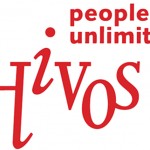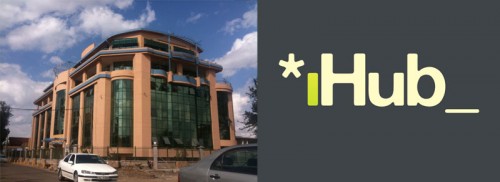 Today it’s our pleasure to announce support from the Hivos Foundation, a Dutch non-governmental organization that aims to contribute to a fair, free and sustainable world. Hivos confirmed their support to Ushahidi several weeks ago, but we’ve been waiting for the perfect opportunity to put their funds to use. The recent deployment in Haiti presents just such an occasion.
This relationship with Hivos is very new for us, but it's hard to understate how much impact their contribution has made in such a short amount of time.
Today it’s our pleasure to announce support from the Hivos Foundation, a Dutch non-governmental organization that aims to contribute to a fair, free and sustainable world. Hivos confirmed their support to Ushahidi several weeks ago, but we’ve been waiting for the perfect opportunity to put their funds to use. The recent deployment in Haiti presents just such an occasion.
This relationship with Hivos is very new for us, but it's hard to understate how much impact their contribution has made in such a short amount of time.
Documenting the Haiti Deployment
In the immediate aftermath of the disaster, Ushahidi’s talented team of programmers and designers launched http://haiti.ushahidi.com. Next we focused on getting information into the system, and volunteer teams of crisis mappers gathered in situation rooms in Boston, DC and Geneva to “crowdsource the filter” and make sense of the mountain of incoming data. Working in partnership with the U.S. Department of State, InSTEDD and others, we also launched the 4636 short code which has made mobile reporting in Haiti viable. Subscribers on the DigiCel and Voila / Comcel networks can send SMS free of charge and report their location and need. Together these two networks represent 89% coverage of the mobile market in Haiti. And we’ve attracted an impressive list of humanitarian agencies tracking the feed who attest to its impact on the ground. As the Haiti deployment goes forward, one of the most valuable things to do is learn from the operations and a study of the organization as it evolves in real-time. This knowledge is crucial if we want to put together successful instances in the future. Hivos is making it possible for us to hire video journalist Jon Shuler to capture the behind-the-scenes story. Jon is talking to David Kobia, Ushahidi co-founder and lead developer, Brian Herbert 4636 project lead, Katie Stanton, our contact at the U.S. Department of State, and then Patrick Meier crisis mapping lead. Finally, he is visiting the main situation room in Boston.Ushahidi Haiti from Ushahidi on Vimeo.
[See the video and write-up here] At Ushahidi, we subscribe to the theory that, "if it works in Africa, it will work anywhere,” and that is now proving true. The deployment in Haiti is an amazing example of how software that was created by Africans for use in Africa is being exported to the rest of the world. Documentation of this effort will help us and others replicate what Ushahidi does in the future - and it's a rare opportunity.Supporting African Tech Growth
Beyond Haiti, Jon will travel to Kenya in March / April to witness how real-life users in Africa are going about using the Ushahidi platform. In addition, he will cover the evolution of Ushahidi’s innovation hub – the iHub – in Nairobi, a project that will also benefit from Hivos’ support. This differs from Jon’s Haiti work, as here in East Africa his role will be to primarily interview end-users, the people on the ground using the tool, pulling out valuable information and lessons-learned that are hard to capture on our own in an objective way. The iHub in Kenya was created to be a space for the tech community in Nairobi to use as a physical nexus space for meetings, events and work. It’s an open space for the technologists, investors, tech companies and hackers in the area. This space is a tech community facility with a focus on young entrepreneurs, web and mobile phone programmers and designers. It also serves as Ushahidi’s central hub for East African operations. Much of Ushahidi was built by volunteer developers and designers in Kenya, and it’s this community that we are giving back to, while also serving our own needs in the region.
By creating the iHub, Ushahidi will establish firm roots in Kenya, the place where Ushahidi was born and the only country in the world where we will have over a dozen installations running by the end of 2009. The iHub will service Ushahidi’s in-depth testing and deployments in Kenya, and provide a space to host Ushahidi events. With a buzzing tech scene and an emerging pool of talent in the region, Kenya offers a fertile environment to build the Ushahidi ecosystem.
The iHub in Kenya was created to be a space for the tech community in Nairobi to use as a physical nexus space for meetings, events and work. It’s an open space for the technologists, investors, tech companies and hackers in the area. This space is a tech community facility with a focus on young entrepreneurs, web and mobile phone programmers and designers. It also serves as Ushahidi’s central hub for East African operations. Much of Ushahidi was built by volunteer developers and designers in Kenya, and it’s this community that we are giving back to, while also serving our own needs in the region.
By creating the iHub, Ushahidi will establish firm roots in Kenya, the place where Ushahidi was born and the only country in the world where we will have over a dozen installations running by the end of 2009. The iHub will service Ushahidi’s in-depth testing and deployments in Kenya, and provide a space to host Ushahidi events. With a buzzing tech scene and an emerging pool of talent in the region, Kenya offers a fertile environment to build the Ushahidi ecosystem.